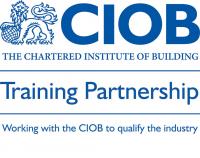Looking to offer engineering placements? We help employers recruit dedicated students in collaboration with Cardiff University's School of Engineering.
A cost-effective solution to recruiting new talent, our Year in Industry Scheme provides employers the opportunity to work with engineers supported by the renowned institution, Cardiff University's School of Engineering. Along with the ability to develop a relationship with Tutors and the University to influence their staff's learning, this scheme your company's opportunity to shape the next generation of engineers.
For students, our Year in Industry Scheme means a head start in their career, creating that vital connection between academia and real-world experiences, and with anecdotal evidence showing students who take a sandwich year achieving better results, we're here to ensure students have as many opportunities with employers as possible.
We currently match around 100 students to suitable employers each year from a range of engineering courses such as Architectural Engineering, Civil Engineering, Civil & Environmental Engineering, Electrical & Electronic Engineering, Integrated Engineering, Mechanical Engineering and Medical Engineering.
If you would like to discuss recruiting and employing an engineering student during the next academic year, please get in touch with Year in Industry Coordinator, Sian Stocker.
Get in Touch
FAQs
What is the aim of the scheme?
An integral part of many engineering undergraduates' studies, this scheme provides students not only with the opportunity to gain practical knowledge and work experience in their chosen specialism, but a realistic and balanced perspective of their chosen profession before graduating.
After graduating, many students secure their first full-time role with more ease and confidence as a result of their performance during the scheme, and we often receive positive feedback from companies reporting that students have quickly adapted to their working environment and adopted a high standard of professional behaviour.
How long are placements?
Under normal circumstances the placement should last a minimum of 48 weeks; however, it can and often does last longer by mutual agreement between student and employer. It is recognised by the university that a flexible approach is sometimes necessary.
How are placements advertised?
Once we receive your company's placement outline (to include a job description, details of the tasks the student undertake, personal qualities and qualifications required, salary, how to apply, and any other relevant information), the Year in Industry Coordinator will communicate the proposed opportunity to all relevant students at Cardiff University's School of Engineering.
What is the student application process?
This is down to each company’s preference; students can send in a CV - with or without a covering letter - or an application form. Applications are then passed to employees via the Year in Industry Coordinator
What costs are involved?
There is no charge to employers for our preparation, organisation and management of the placements and the subsequent monitoring and visits. The only charge to employers is the student's salary, with which we are able offer insight or suggestions.
When do placements run?
Once students have attended a health, safety and welfare briefing and completed their second-year examinations, placements can start anytime between the end of the academic year (June-July) and the end of September.
Authority to Start Placement
Students must pass their previous year of study with an average of 50% or above to be allowed to proceed on an authorised university placement; these results are released between June and July. Shortly after, our Year in Industry Coordinator will distribute the “Authority to Start Placement” letters, as a scanned copy for employers and the original for the students.








